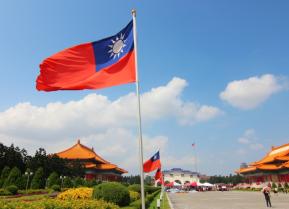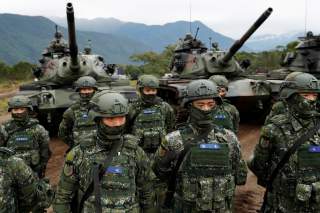China vs. Taiwan: Would Beijing Ever Invade?
What would happen?
U.S. (and Japanese) ambiguity on whether it would intervene if Taiwan were attacked has run its course. It may have worked when China was the weaker party in the Taiwan Strait, and when the priority of decision makers in Beijing was to develop China’s economy, which necessitated regional stability. This is no longer the case. As China’s behavior in the East and South China Seas has made clear since 2009 or so, the “peaceful rise” is over. Although this doesn’t mean that regional powers and the United States should gang up on China, clearer signaling is now necessary. Beijing must be made to understand that if it crosses certain lines, its behavior will be met with countervailing actions.
To ensure peace and stability in the Taiwan Strait, Taipei must do a lot more to signal to Beijing that force will be met with force, and that adventurism in the grey zone will not only be costly, but unwinnable. This could be bolstered by closer U.S.-Taiwanese military cooperation. Such efforts, combined with a propaganda campaign by Taipei that seeks to boost morale and reaffirms its will to fight, should be sufficient to deter the PLA from launching limited (and potentially counterproductive) attacks. For its part, the United States must substitute clarity for ambiguity, and leave no doubt that an attack on Taiwan will prompt a U.S. response, regardless of whether U.S. forces are directly attacked in an initial phase. Greater clarity on Tokyo’s part would also go a long way in convincing Beijing that it could not get away with military aggression.
We can hope that the leadership in Beijing is well attuned enough to attitudes in Taiwan to realize that a lot more patience and understanding will be needed before the two incompatible societies can agree to some sort of merger. For one thing, the “easy” part in Taiwanese-Chinese relations is over; whatever comes next will involve much more friction and governments in Taiwan (DPP or KMT) that are a lot less amenable to giving Beijing what it wants. In other words, after 2016, whoever occupies the Presidential Office in Taipei will likely be more centrist and, therefore, much more frustrating to Beijing.
There is reason to be pessimistic: many foreign diplomats who have worked in Beijing have shared with this author their view that the CCP fares rather poorly when it comes to understanding, let alone brooking, different views and ways of life. This perception was reinforced by Beijing’s clumsy White Paper on “one country, two systems” for Hong Kong and even clumsier handling of its repercussions, not to mention the escalating crackdown in Xinjiang.
Given this, while every effort should be made to encourage the “peaceful” development of relations in the Taiwan Strait (without curtailing the rights of Taiwanese to maintain their way of life and determine their destiny), it wouldn’t hurt if Chinese hubris were met with clarity. However frustrating things might get in the future, Beijing must be made to understand that the military option simply isn’t an option.
J. Michael Cole is a senior non-resident fellow at the China Policy Institute, University of Nottingham, and an Associate researcher at the French Center for Research on Contemporary China (CEFC) in Taipei.


